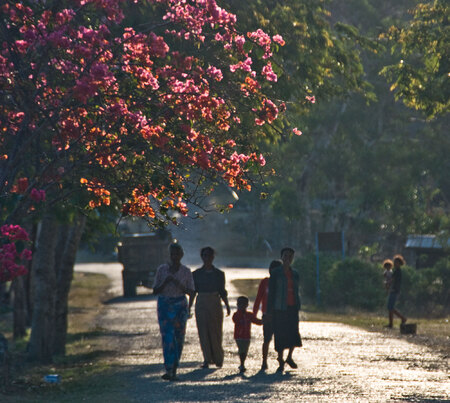[Originally published in the Vanuatu Daily Post’s Weekender Edition.]
On Monday, the Pacific Institute of Public Policy officially launched ‘The political parties and groupings of Vanuatu’. The 60-page booklet is a treasure trove of information about Vanuatu’s political past and present. It lists the major political parties along with a brief history, key membership and policies. Already, there are over 500 Bislama copies in circulation. This number is expected to double before the election.
Chiefs, government representatives and members of civil society all voiced their support for the report. Without simple, reliable information like this, voters rely on intuition and (often hollow) promises to choose a candidate. Prior to this, the task of sifting the wheat from the rhetorical chaff was near impossible.
Rebecca Olul, manager of Save the Children’s Youth Outreach project, shared some lively and nuanced insights with the audience at Monday’s presentation. Her short speech cast a jaundiced eye on the vague blandishments that sometimes pass for policy. Without resorting to rank cynicism, she encouraged readers of the report to carefully weigh their candidates’ words and actions.
The 25 year old knows the challenges facing young people today, the competing tensions between Vila and village, kastom and 21st Century culture. She combines 6 years of living and learning overseas with the intimate understanding of life in the islands that only those born into it can possess.
Vanuatu society is among the rapidly diminishing number that still guarantee their members a place and a purpose in life. Traditional life is clearly delineated – not to say boring – in almost every way. Family ties, rank and gender define every aspect of one’s existence. If you are an adult male in a family in good standing, life is very good indeed. But the situation degrades from there.
Continue reading →

